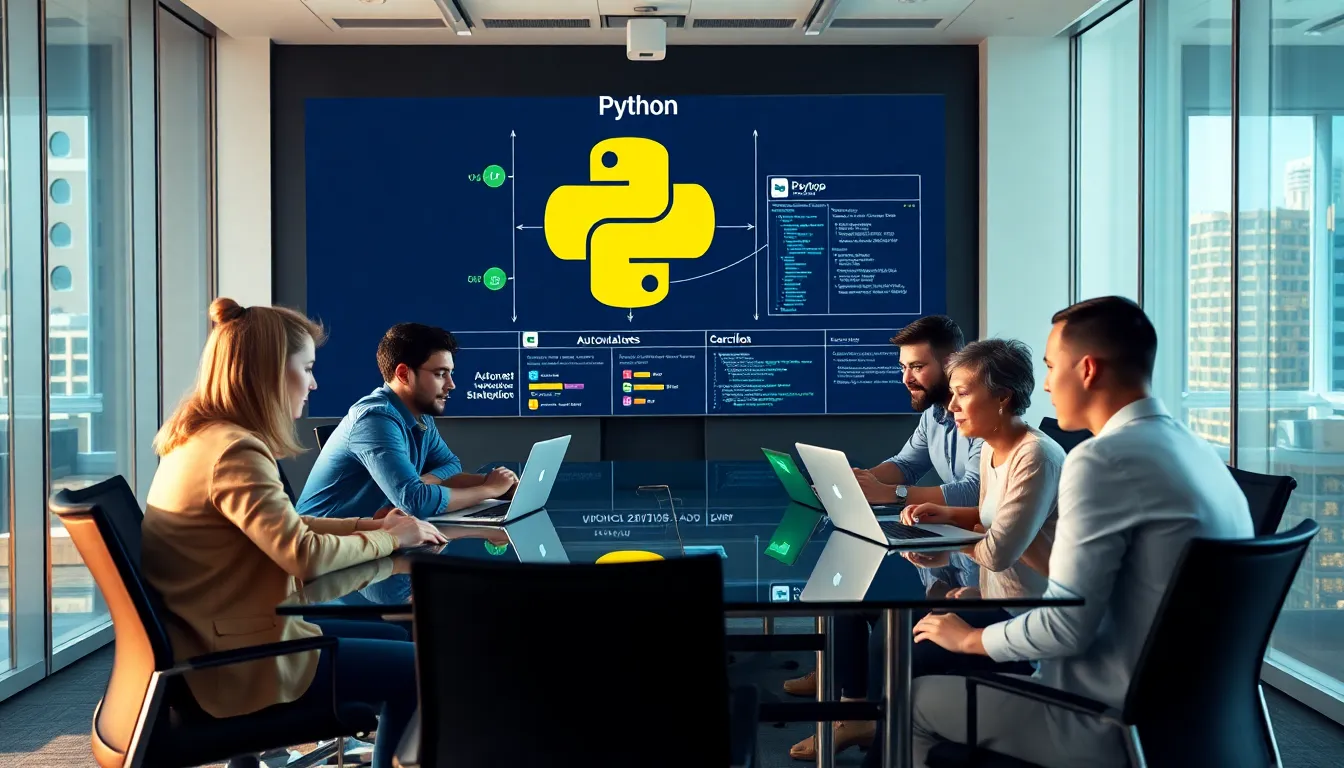Table of Contents
ToggleImagine wrangling your infrastructure with the elegance of a python dancer. No, not the snake, let’s talk about Python, the programming language. In the ever-evolving world of DevOps, Python has slithered its way to the forefront, offering simplicity, flexibility, and a plethora of libraries that make DevOps engineers’ lives easier. Whether you’re orchestrating deployment, monitoring systems, or managing configurations, Python’s rich ecosystem is bound to make your efforts far more efficient and enjoyable. So, buckle up as we explore how this dynamic language can revolutionize your DevOps processes.
Introduction To Python In DevOps

Python has gained immense popularity in the realm of DevOps, and it’s not difficult to see why. This high-level programming language is celebrated for its readability and simplicity, which means teams can quickly write, maintain, and deploy code. In the fast-paced world of DevOps, where automation and speed are key, Python’s ability to streamline processes is invaluable.
DevOps is all about collaboration, automation, and integrating development with operations. Python bridges the gap between these teams like a well-placed bridge on a bustling road. Besides, its extensive library support means that whatever task a team is tackling, there’s likely a ready-made solution out there.
Why Python Is Ideal For DevOps
Now, why exactly is Python the poster child for DevOps? To put it simply, it’s versatile. DevOps involves so many different tasks, from automation and CI/CD pipelines to cloud configurations, that versatility is essential.
- Ease of Learning: Python’s syntax is straightforward, making it accessible even for those who aren’t seasoned developers. This reduces the learning curve, allowing teams to focus on solving their problems without getting bogged down by complex syntax.
- Broad Support: With a massive base of libraries and frameworks, Python can cater to various needs. From web-based frameworks like Flask and Django to libraries such as Requests for APIs, Python’s arsenal is impressive.
- Community Support: An established community means that problems have likely been solved before. Developers can rely on online forums, extensive documentation, and an array of tutorials.
Key Python Libraries For DevOps
The true power of Python in DevOps is revealed through its libraries. Here are some noteworthy ones:
- Ansible: A configuration management tool loved by DevOps practitioners. Ansible automation can simplify repetitive tasks and streamline processes.
- Docker SDK for Python: This allows developers to interact with Docker containers directly through Python. It enables managing containers programmatically, enhancing deployment efficiency.
- AWS Boto3: Facilitates the management of AWS services using Python. If your infrastructure runs on AWS, Boto3 is indispensable.
- Requests: A simple library for making HTTP requests. When monitoring applications or calling APIs, it gets the job done efficiently and easily.
Automating Deployment With Python
Automation is at the heart of DevOps, and Python excels in creating scripts that help deployment. Continuous Integration and Continuous Deployment (CI/CD) pipelines can be enhanced using Python scripts, which not only help automated testing but also manage deployments seamlessly.
For instance, using frameworks like Jenkins along with Python scripts enables the execution of test cases as soon as code is committed. This quick feedback loop allows teams to maintain high code quality while rolling out new features rapidly.
Monitoring And Logging Using Python
Monitoring applications is crucial for ensuring performance and availability. Python can simplify this through various libraries and integrations. Tools like Prometheus, combined with Python, make it easy to collect metrics, while libraries like Loguru help logging in a user-friendly manner.
With effective monitoring implemented using Python, teams can gain insights into application performance in real-time. This visibility empowers proactive measures to be taken before issues escalate, aligning perfectly with the DevOps philosophy of continuous improvement.
Configuration Management With Python
Configuration management ensures consistency and flexibility. Python scripts combined with tools like Ansible can automate the management of server configurations.
Teams can write Python scripts that define the desired state of their applications and infrastructure. This not only saves time but also minimizes human error, which could otherwise lead to inconsistencies across environments. Configuration as Code (CaC) allows for more controlled and repeatable deployments.
Best Practices For Using Python In DevOps
To make the most of Python in a DevOps context, following best practices is essential:
- Ensure Code Readability: Maintain clean, readable code to help collaboration amongst team members.
- Use Virtual Environments: Isolate project dependencies using virtual environments. This minimizes conflicts between projects.
- Automate Tests: Carry out automated tests at every stage of development to ensure that new changes do not break functionality.
- Leverage Version Control: Always use version control systems like Git to track changes and collaborate effectively.




